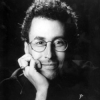Tony Kushner

Tony Kushner
Anthony Robert "Tony" Kushneris an American playwright and screenwriter. He received the Pulitzer Prize for Drama in 1993 for his play Angels in America: A Gay Fantasia on National Themes. He co-authored with Eric Roth the screenplay for the 2005 film Munich, and he wrote the screenplay for the 2012 film Lincoln, both critically acclaimed movies, for which received Academy Award nominations for Best Adapted Screenplay. For his work, he received a National Medal of Arts from President Barack Obama...
NationalityAmerican
ProfessionScreenwriter
Date of Birth16 July 1956
CityNew York City, NY
CountryUnited States of America
The work of artists is to find what's humanly possible - possibility's furthest reaches.
If you have value as an artist it's probably going to be in your capacity to let things inside you get past things that are placed there to keep you from telling the truth. The more you see things as clearly and coldly as you can, the more value you're going to have.
I go into any movie that's historical fiction thinking, 'OK, I'm here to watch a work of art, something delivering a series of opinions, and if it's a good work of art, these opinions become so deeply embedded in complexity and richness that I won't even be bothered by the opinions. I'll make my own mind up.'
You have a strange relationship with calamity when you're a writer: you write about it; as an artist, you objectify and fetishize it. You render life into material, and that's a creepy thing to do.
And I don't consider Broadway the acropolis of theatrical art. I mean Broadway is commercial - that's what it is. It's expensive seats and a lot of them that have to be filled every night. Off-Broadway and Off-Off Broadway, as far as I'm concerned, is in New York the pride of New York theater.
As much as I hate his movies, Oliver Stone has an aspiration I admire, and that is that he wants his art to be part of what makes and changes public policy and cultural practice.
I don't think you have to earn your income as an artist to be an artist. But if you are an artist, then art is what you do, whether or not you're paid for doing it; it is what you do, not what you are. I regard artist not as a description of temperament but as a category of profession, of vocation.
Who knows better than artists how much ugliness there is on the way to beauty, how many ghastly, mortifying missteps, how many days of granitic blockheadedness and dismaying ineptitude there is on the way to accomplishment, how partial all accomplishment is, how incomplete?
Artists know that diligence counts as much, if not more, as inspiration; in art, as in politics, patience counts as much as revolution.
People shouldn't trust artists and they shouldn't trust art. Part of the fun of art is that it invites you to interpret it.
The attack on 'Munich' was not coordinated but it amounted to a real campaign to have a lot of people not see the film and it got mixed up with Oscar issues.
I'm happy that I feel a little less out of place in filmmaking than I once was - but it's almost impossible for a playwright in the U.S. to make a living. You can have a play, like I did with 'Angels,' and it still generates income for me, but it's not enough for me to live on and have health insurance.
What astonishes me about the response to 'Munich' is this angry rejection of the idea that it makes any difference to know what motivates people to do bad things, that you don't need to know why. It is like saying that real men shoot first and ask questions later like in 'Dirty Harry' movies.
The streets of New York are entirely man-made and unmistakably that, so you feel as though you're on some sort of presentation platform whenever you're out on the streets.